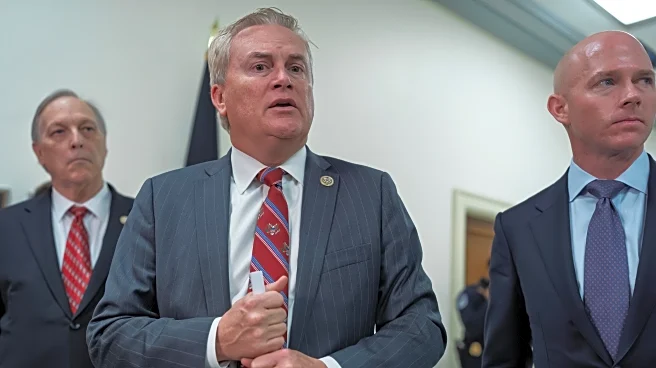What is the story about?
What's Happening?
The United States Mission in Nigeria has addressed concerns regarding the non-refundable nature of U.S. visa fees, emphasizing that each application undergoes a fair review process. This announcement comes amidst growing frustrations among Nigerian applicants who face high costs without guaranteed approval. The U.S. Department of State recently revised its global schedule for nonimmigrant visa application fees, affecting Nigerian applicants. Visitor visas, a common category for Nigerians traveling for business or tourism, now cost $185. The embassy advises applicants to prepare thoroughly and use official resources to minimize errors and unnecessary expenses.
Why It's Important?
The non-refundable visa fees have significant implications for Nigerian applicants, who are already facing economic challenges. The high costs and lack of refund policies can deter individuals from applying, impacting travel and business opportunities between Nigeria and the United States. This situation highlights broader issues of accessibility and fairness in international mobility, particularly for applicants from African countries, which have been hit hardest by high rejection rates and rising application costs. The embassy's emphasis on fair reviews aims to reassure applicants, but the financial burden remains a critical concern.
What's Next?
Applicants are encouraged to carefully prepare their applications and rely on official resources to avoid errors. The U.S. Mission in Nigeria continues to provide guidance through its official channels. As visa policies evolve, applicants may need to stay informed about any further changes in fee structures or application processes. The embassy's communication strategy may also adapt to address ongoing concerns and improve transparency in the visa application process.
Beyond the Headlines
The issue of non-refundable visa fees raises ethical questions about the fairness of international travel policies, particularly for individuals from economically disadvantaged regions. It underscores the need for more equitable systems that consider the financial impact on applicants. Additionally, the situation may prompt discussions on global mobility and the barriers faced by individuals from developing countries seeking opportunities abroad.


















